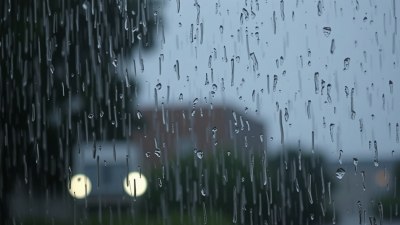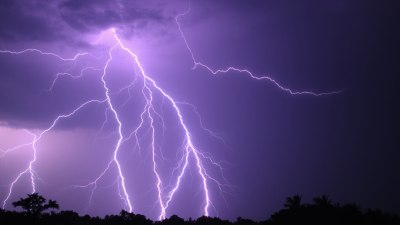Why Rain Makes Breakups Feel Like Indie Movie Montages
Explore how rain influences our emotions during breakups, adding a cinematic, indie movie montage vibe to heartache and healing.

Image created with Flux Schnell
Rain has a peculiar way of coloring our emotions, especially during moments of heartbreak. When relationships end, the gray drizzle often feels like the perfect soundtrack, casting a cinematic veil over our sorrow. This phenomenon is far from accidental; it taps into cultural imagery, psychological responses, and the symbolic meanings of rain that make breakups feel like indie movie montages.
The Symbolism of Rain in Storytelling
Rain has served as a potent symbol across cultures and centuries. Traditionally, rain represents renewal and cleansing, but it can also embody sadness, melancholy, and isolation. In storytelling, rain frequently marks transition points, emotional lows, or moments of transformation for characters. Indie films, in particular, embrace rain to underscore the internal turmoil of protagonists, making the gloomy weather almost a character itself.
When a breakup occurs, rain often symbolizes the washing away of the past and the bittersweet release of old attachments. This aligns with societal narratives where the protagonist, soaked in rain, faces their pain head-on, eventually leading to growth or acceptance. The presence of rain enhances the gravity of this moment, imbuing it with a poetic quality that resonates deeply with audiences.
How Indie Films Use Rain to Heighten Emotional Impact
Indie movies are known for their understated, authentic portrayals of human experiences. Unlike blockbuster productions, these films often use minimal dialogue and rely heavily on visual storytelling. Rain becomes an essential device to encapsulate feelings that words cannot fully express.
Consider the typical breakup montage in an indie film: a pensive protagonist walking alone under a soft drizzle, reflective music playing, looking lost yet oddly serene. This imagery condenses the complexity of heartbreak into a visceral visual moment. The rain not only mirrors the character's tears but also isolates them, highlighting their solitude. The water's sound - rhythmic, gentle, sometimes harsh - punctuates the silence, creating a sensory layer that draws viewers deeper into the emotional landscape.
Psychological Responses to Rain and Its Association with Mood
From a psychological perspective, rain triggers certain mood responses that can amplify feelings of sadness or introspection. The decreased sunlight and overcast skies associated with rainy weather reduce serotonin levels in the brain, which can lead to lowered mood or mild depressive states. This biological reaction makes it easier for individuals to connect with feelings of loss during vulnerable moments.
Moreover, the sound of rain has a hypnotic effect, capable of inducing a contemplative or even meditative state. This auditory stimulus encourages people to slow down and inwardly reflect, which naturally occurs after a breakup. The combination of physiological and emotional states during rain makes public or private expressions of pain feel more natural and less forced.
Cultural Conditioning and Media Influence
Our collective response to rain during breakups is heavily shaped by media and cultural conditioning. Countless films, television shows, and music videos depict rain as the backdrop for pivotal emotional scenes, reinforcing the association between rain and heartbreak. This repetition conditions audiences to expect rain as an accomplice to sorrow, embedding the imagery deep into collective consciousness.
Even outside of cinema, artists and musicians often use rain metaphorically to represent emotional cleansing or vulnerability. Lyrics mentioning rain during themes of lost love or transformation confirm how deeply the motif resonates with our experience of breakups, further normalizing this association.
The Intimate Experience of Rain During a Breakup
Beyond symbolism and media, rain can deeply affect the personal experience of heartbreak. A rainy day might encourage someone to stay indoors, creating a safe space for grieving and self-care. Alternatively, choosing to walk in the rain can offer a cathartic release, as the physical sensation of raindrops on skin can feel like a connection to nature’s empathy.
This intimacy is what makes rain so compelling as a metaphor for breakups. The solitary figure drenched by rain becomes a visual metaphor for vulnerability - exposed yet enduring. The weather becomes a silent witness to the unraveling of emotions, helping to externalize internal chaos in a way that invites empathy from both the person going through the breakup and onlookers.
Rain as a Catalyst for Reflection and Growth
Breakups represent endings but also openings for new beginnings. Rain’s cleansing quality can inspire reflection and resilience, signaling a fresh start beneath the surface of pain. In indie movies, the rainy breakup montage often transitions into scenes of hope, where characters embrace change and personal transformation.
Psychologically, this mirrors the real-life process of moving through grief. Allowing oneself to feel sorrow openly (while surrounded by rain or in a similarly symbolic context) can facilitate healing and eventual growth. This cyclical nature of rain—the falling, cleansing, and eventual clearing air—parallels emotional recovery after a breakup.
The Role of Music and Soundscapes in Rainy Breakup Scenes
Indie film montages often pair the image of rain with carefully chosen music tracks that evoke nostalgia, heartbreak, or acceptance. The layering of gentle rain sounds with melancholic acoustic guitars or soft vocals creates an immersive emotional arena. This combination elevates the sensory impact, making the breakup scene feel poignant and memorable.
Spotify playlists, YouTube compilations, and social media also recreate this perfect storm of rain and music for listeners processing their own heartbreak. The cultural feedback loop between personal experience and media curation sustains the motif’s power and presence.
Why the Indie Movie Rain Montage Resonates Universally
The reason rain-themed breakup montages resonate with such a wide audience lies in their universal elements—themes of loss, vulnerability, solitude, and eventual renewal. Rain, an accessible natural phenomenon experienced globally, becomes a shared symbol through which diverse emotional experiences are communicated.
Indie cinema’s emphasis on relatable, small moments gives these montages a candid feel that mainstream productions sometimes lack. The combination of natural imagery, minimalist storytelling, and emotional depth invites viewers to confront their own feelings and perhaps find solace in the shared human experience of heartbreak.
The Counterpoint: When Breakups Happen in Sunny Weather
Interestingly, breakups do not always coincide with rainy weather. When they occur on sunny days, the emotional expression often feels less cinematic and more jarring. The mismatch between bright, cheerful surroundings and internal turmoil can create a dissonance that is harder to parse visually or emotionally.
This juxtaposition sometimes appears in films as intentional irony or to challenge typical narrative tropes. However, it is the rain montage’s consistency and predictability that provide comfort—a symbol many have come to understand instinctively.
The Personal and Cultural Significance of Rain in Post-Breakup Rituals
Beyond cinematic representation, rain plays a role in real-life breakup rituals or coping mechanisms. Some individuals seek the rain as part of a symbolic act—walking through it, running in it, or simply staring out a window as it falls. These acts mirror the cleansing and transitional symbolism attached to rain and give physical form to emotional processes.
Culturally, certain traditions use rain metaphorically in rites of passage or healing ceremonies, emphasizing its function as a purifier. This shared symbolism might unconsciously support people during emotionally difficult times, reinforcing why rain feels appropriate during moments of romantic loss.
Breaking the Rainy Breakup Montage Stereotype
While rain montages have their place, it is important to recognize that not all breakups must feel cinematic or align with the melancholic rain trope. Human emotion is varied and complex; some people may find solace in sunshine, others in silence, or in social connection rather than solitude under rainfall.
Art and media are evolving to reflect this diversity, with some indie films exploring breakup scenes in different weather or settings that defy expectations. This broadening of narrative techniques enriches the storytelling landscape and honors the multifaceted nature of human experience.
Understanding the Emotional Power of Weather in Visual Storytelling
Weather is a timeless tool in visual storytelling because it taps into primal human experiences. Rain, with its sensory qualities and symbolic weight, uniquely enhances emotional narratives like breakups. It draws out vulnerability, intimacy, and the fluidity of emotions, making heartbreak not only visible but deeply felt.
In indie movies, this manifests as vivid montages where the weather, setting, sound, and character actions converge. These moments become cultural touchstones through which audiences process their own emotional journeys, offering both aesthetic beauty and psychological insight.
Rain amplifies breakup feelings much like indie film montages because it aligns perfectly with the stages of loss, reflection, and growth. Its presence comforts yet challenges, externalizes pain yet promises renewal—capturing the essence of human heartbreak as art.











